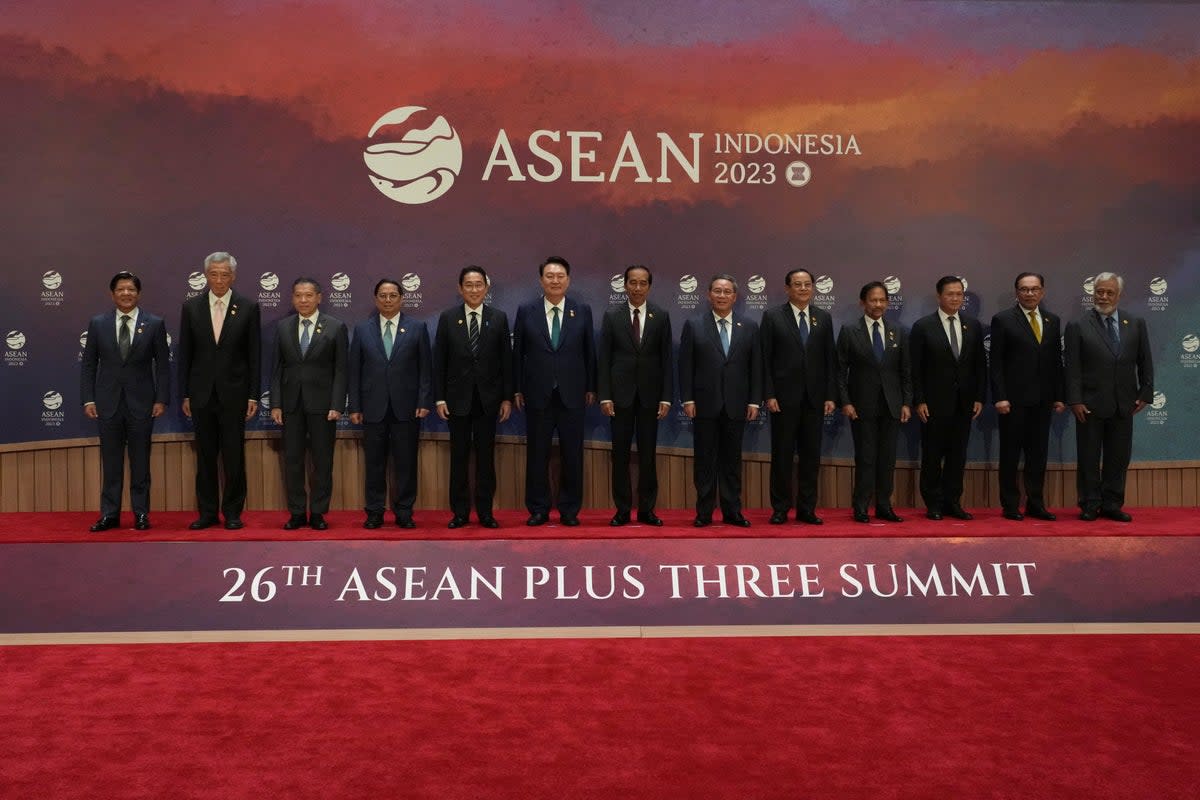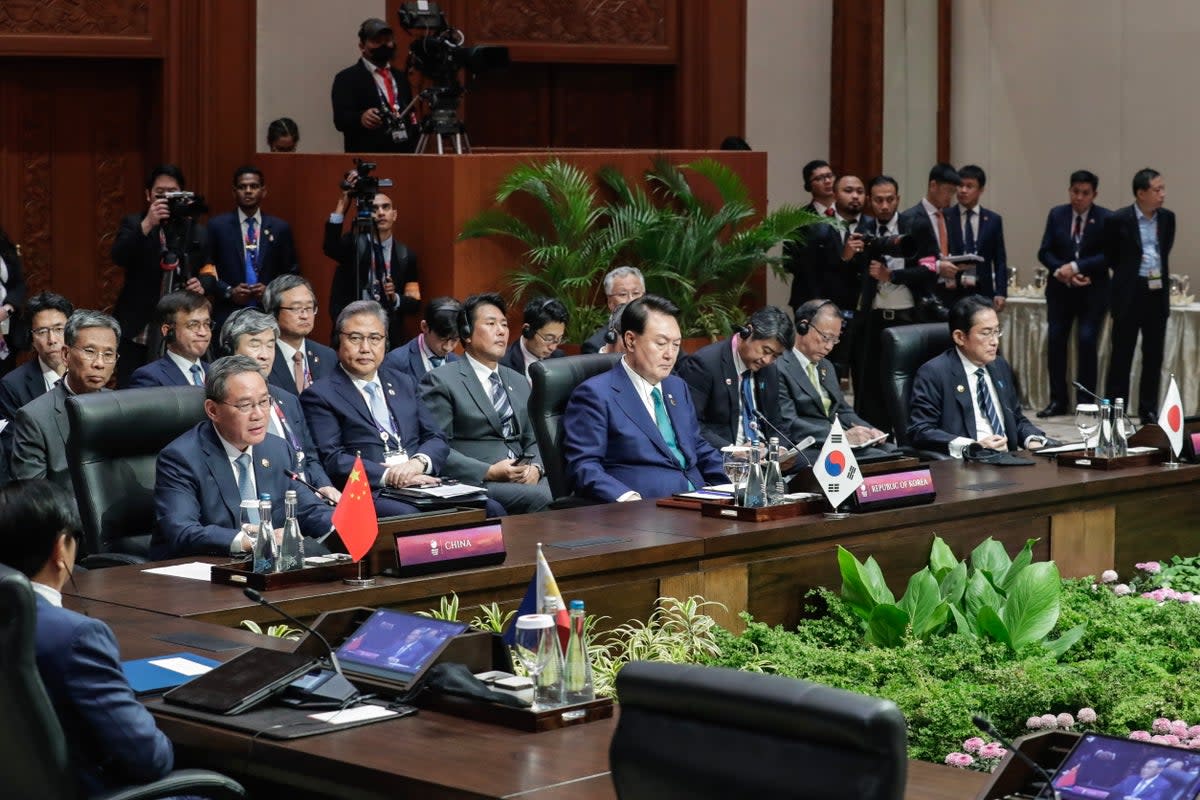ASEAN summit accused of becoming ‘irrelevant’ as it fails to take stance on South China Sea and Myanmar

Criticism has mounted on members of the Association for Southeast Asian Nations (Asean) for failing to reach a consensus on key issues in the regions, including the South China Sea and strife-torn Myanmar.
The Asian bloc has been decried by critics as a “toothless talking shop” for its failure to get Myanmar’s ruling military to make progress on the controversial five-point peace plan.
During the three-day summit in Jakarta from 5-7 September, the leaders reportedly issued a 19-point summit urging the Myanmar junta to de-escalate “violence and stop targetted attacks on houses and public facilities, such as schools, hospitals, markets”.
“We strongly condemned the continued acts of violence in Myanmar,” the bloc said.
The bloc, for decades, operated under the principle of not interfering in each other’s internal affairs and reaching an agreement by consensus, but that has left it struggling to press the generals in Myanmar beyond barring them from its high-level meetings.
Myanmar on Tuesday announced it had ceded its turn to chair the Southeast Asian regional bloc, passing on the responsibility to The Philippines.
Indonesian president Joko Widodo had asked for unity and cooperation “for peace and prosperity” in the region, but according to reports, the peace plan to end the violence remained stuck.
“The conclusion is that there is no significant progress in the implementation of the five-point consensus,” Indonesian foreign minister Retno Marsudi said.

The minister said the bloc leaders have agreed to an informal “troika” approach to Asean’s special envoy on Myanmar, which would see the chair supported by the former and future chairs for continuity.
“A troika was formed to ensure the continuity in terms of handling the issue because everyone understands this situation cannot change in one year,” Mr Retno added.
Amid the ongoing regional tension between bloc countries, the Indonesian president assured that the bloc’s unity was well intact.
“Lately, I’ve been hearing questions related to Aean: Will Asean break up and not be able to unite? Can the Asean ship keep sailing?” Mr Jokowi told his counterparts at the start of the summit.
“As a family member and as the chair of Asean, I want to affirm that ASEAN’s unity is still well maintained. Unity does not mean there is no difference of opinion,” he added.
The host president warned bloc countries against getting dragged into “big-power rivalry” as hostility between US and China loomed over the meeting.
The summit comes days after China released a “10-dash line” map, illustrating its claim to an extensive portion of the South China Sea that will likely add urgency to negotiations on a long-delayed code of conduct in the strategic waterway.
Asean member states Malaysia, Vietnam and the Philippines, which have overlapping claims in the South China Sea, have rejected China’s map.
Japan too has lodged a strong protest through diplomatic channels over the new map released by Beijing last month. China responded to Japan’s objections on Wednesday, saying the “Diaoyu Islands and affiliated islands are China’s inherent territory”.
Beijing’s actions in the South China Sea were also to feature prominently in discussions, AFP reported, citing an earlier draft communique.
The bloc members were to express concern about “land reclamations, activities, serious incidents” in the waterway, according to the draft.
Asean leaders later this week will hold an East Asia summit, a wider forum that includes China, India, Japan, Russia and the US.
